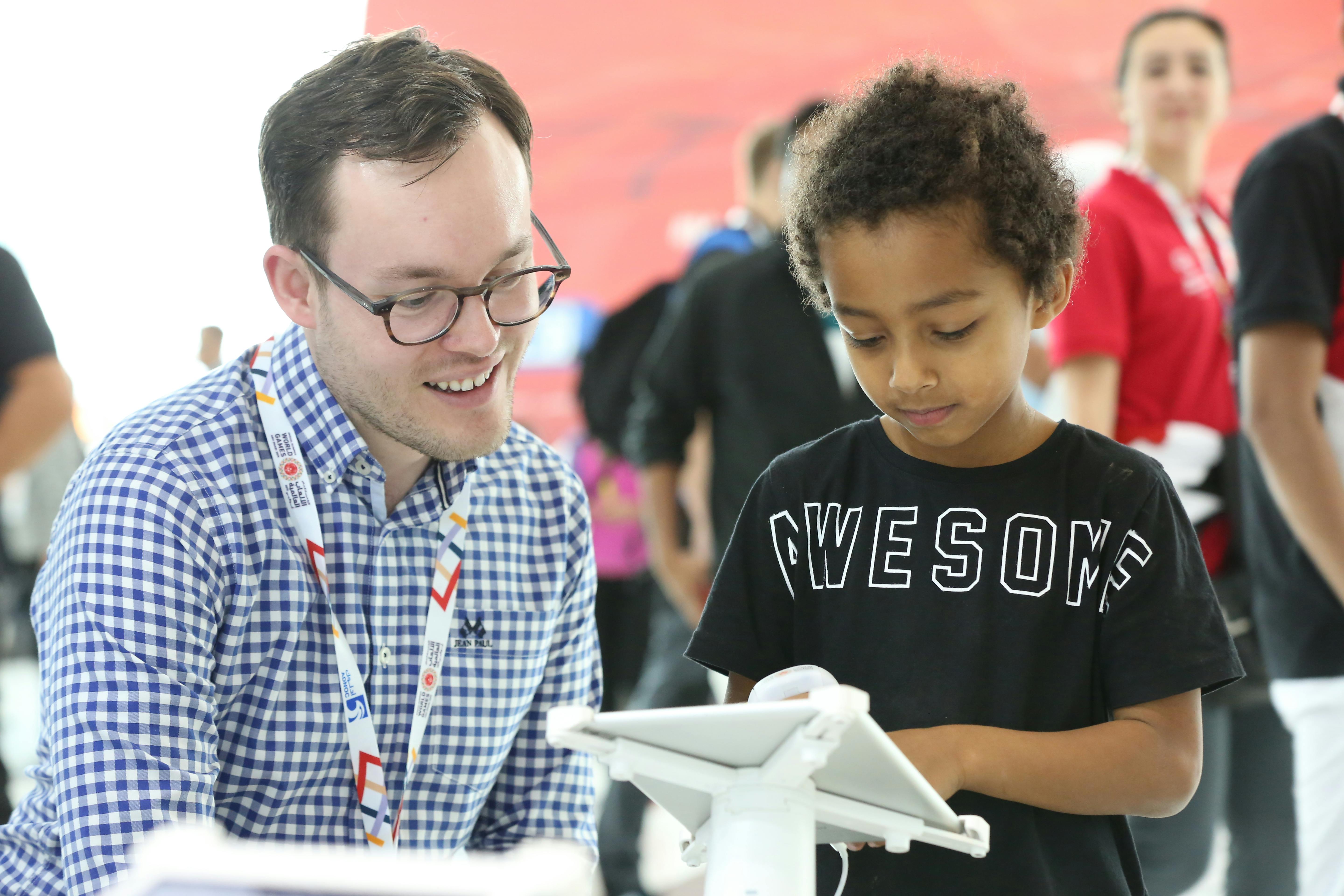How SignLab is teaching the world to sign
21 May, 2020
Lester Isaac Simon

Access to effective and affordable sign languages education is a global problem. To help people achieve fluency in sign languages and empower children, parents and communities to communicate better, entrepreneur Endre Elvestad created SignLab. The Norwegian startup has developed a platform that offers personalized and fun sign languages resources, with the mission to break down communication barriers all over the world.
Founded in Trondheim, Norway in 2017, SignLab has developed an accessible digital learning platform to help people learn sign languages effectively and affordably. SignLab’s platform comprises a growing library of digital and video content for its learners and uses AI to personalize every individual’s learning journey.
Alongside its educational offerings, SignLab also collaborates closely with deaf communities to create educational and professional opportunities.
Identifying the problem
According to founder and CEO Endre Elvestad, of the 64 million parents of deaf or hard of hearing children across the world, fewer than one in ten can use sign language. Millions of children are unable to attend school or communicate with their families due to a lack of educational offerings and prohibitively high costs. The adult deaf population has a high level of unemployment compared to the hearing population.
“Behind the sad statistic is a lot of pain,” says Endre. “Parents feel helpless and guilty for not being able to learn sign language. Children feel isolated and left behind. Many people feel disconnected from their families, classmates and society.”
Endre first encountered this problem while completing a master’s in computer science at the Norwegian University of Science and Technology (NTNU). He worked with the Norwegian Consulate in San Francisco to learn about how to scale successfully in the US as a Norwegian entrepreneur, and when he returned to Norway, sought out an international problem in education to cover for his thesis.
His research included interviewing parents who were unable to learn sign language and as a result couldn’t communicate easily with their children. These stories, coupled with heartbreaking statistics, drove Endre to create SignLab.

Building the platform
Although Endre founded SignLab in 2017, its official launch wasn’t until 2019. In the early days of development, the team created a version of the platform that didn’t quite fit the intended user base. “Making the typical technologist mistake, I became enamored by new technologies and made something parents hated,” says Endre.
SignLab only had two months of funding left at this point, but the team stuck to its vision and, more importantly, stuck together. Not a single team member left, and the startup made changes to its platform so that parents soon became SignLab’s strongest advocates. Endre says, “This is the strength found in organizations that foster meaningful relationships and are building something personally meaningful.”
Bringing sign language to the world
SignLab is in a healthy growth stage after receiving funding from various sources, including VCs and angel investors, NGOs and through projects with the Norwegian Department of Education. Endre and his team have also partnered up on projects with the Norwegian Agency for Development Cooperation (Norad), which Endre says is rare for young startups. “That we have acquired their support is a testament to our achievements to date and future impact,” he says.
Though SignLab was founded in Norway, it maintains a remote team with members spread across Norway, the US, the UK, Vietnam and Hungary. It has plans to expand to China, India and Indonesia, as well as other European countries in 2021. Endre believes that investment abroad helps everyone across the platform. “By Norad investing in us to help people in China, India and Indonesia, they also help Norwegian families, since the platform is the same,” Endre says.
SignLab hopes to provide over 60% of the global deaf population and their families, schools, and surrounding communities with its unique sign languages learning platform by 2022. Endre and his team have a goal of reaching over 400,000 families in their target regions, with a total reach of over 4.1 million learners.
Making an impact
SignLab’s platform has become the leading resource for Norwegian Sign Language learners. Deaf adults and children, their family members, employers and sign language teachers all use the resource, and more than 95% of parents with young deaf children use SignLab in Norway. Endre says, “The platform teaches as many new signs per day as the rest of the country combined.”
In addition to making direct impact in sign language education, SignLab helps deaf people find stable incomes via revenue sharing and by matching learners with local sign language offerings. The platform has won several awards, including the Most Sustainable Norwegian Startup by someone younger than 35 in 2021 and the Special Olympics Innovation Challenge in 2019.
[You may also like: Can businesses combine profit with purpose? This impact entrepreneur thinks so]
Photos: SignLab